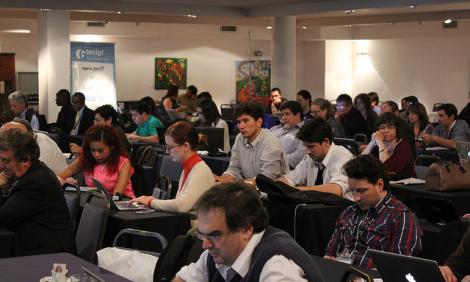
Editorial
Let's go beyond the basics: What would feminist internet governance look like?
Feminism is one of the most important movements in the recent history of humanity, if we measure its political impact, the level of its theoretical proposals, and its ability for social articulation and mobilization, It has permeated the debate, analysis, activism, and development of public policy in critical areas like the economy, culture, health, and education, among others. Nevertheless, when…
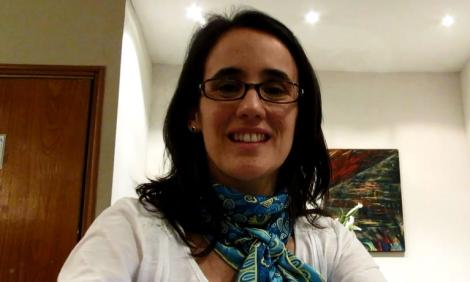
In depth
"We have to respond to discriminatory discourse with more discourse": Natalia Gherardi on symbolic violence
Mother and wife, housewife, caregiver, submissive, fragile. Or bad, crazy, bitch, witch. All are sexist gender stereotypes that speak to what, socially and culturally, a woman is considered to be, or not be, and what she should, or should not, be. How do we dismantle this sort of invisible violence? How do we challenge discriminatory gender stereotypes and label them publicly as being negative,…

In depth
Reflecting on tech-mediated violence against women in Bosnia and Herzegovina
This interview conducted by Selina Mudavanhu from the African Gender Institute, University of Cape Town (South Africa) with Leila Seper, member of OneWorldsee in Bosnia Herzegovina (BiH) and responsible for the ‘Take Back the Tech!’ campaign and networking, reflects on the work developed by OneWorldsee, a civil society organization that works on online spaces and is one of the partners of the…

In depth
Philippines: “If no justice is given to the survivors/victims then the laws become useless”
Violence against women in the Philippines is considered a public crime. According to the Philippines National Demographic and Health Survey, one in five women aged 15-49 has experienced physical violence since age 15. The advent of computers and internet exposes women to another dimension of violence. GenderIT.org writer, Esther Nasikye, talked to Foundation for Media Alternatives about the forms…
Publication
Baseline study: Legal and regulatory framework in Colombia on VAW and ICT - Executive summary
This executive summary outlines the baseline for the present legal and regulatory framework in Colombia on violence against women (VAW) and information and communication technologies (ICT). The data was gathered by collecting information on the legal and regulatory framework. Three main aspects were identified: 1. The criminal offenses defined in the Criminal Code and related to a greater or…
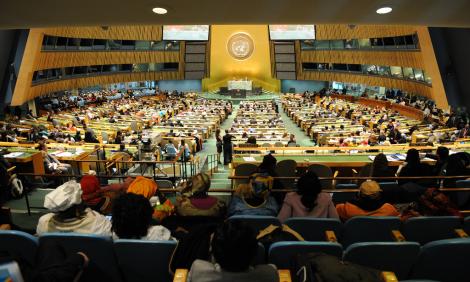
End violence against women: language and action @ CSW57th
This GenderIT.org edition offers reflections on language and actions surrounding issues of technology-related forms of violence against women (VAW). We're looking at these in the perspective/context of the APC project "End violence: Women’s rights and safety online" and the 57th session of the UN Commission on the Status of Women (CSW) which took place between 4-15 March in New York.
…
…

Editorial
Right into reality
Important achievements were attained at the recent Commission on the Status of Women 57th session reviewing government progress worldwide in addressing violence against women and girls. One such attainment was governments' recognition of the growing role of information and communication technologies in the continuum of violence against women.
Perhaps you are a bit skeptical about…
Perhaps you are a bit skeptical about…
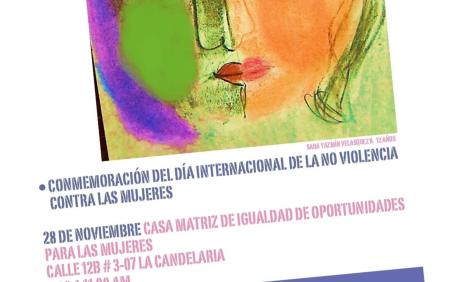
In depth
Violence against women in Colombia: ICT overshadowed
In Colombia there is no law or public policy that relates directly to violence against women and information and communication technologies. "This is a scenario where a lot that needs to be done, but which, at the same time, offers us an opportunity," said Olga Martinez Paz of the organization Colnodo, which runs the Colombia part of the APC project "End violence: women's rights and safety online…
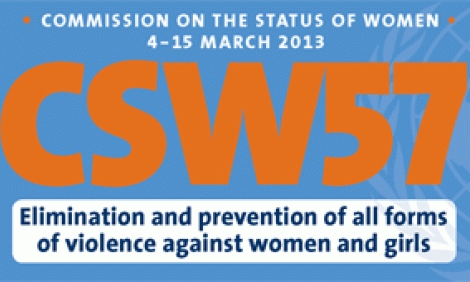
Publication
APC Statement to the CSW 57th Session: Violence against women and information and communications technology
Violence against women (VAW) that is mediated by technology is increasingly becoming part of women's experience of violence and their online interactions. In the same way we face risks offline, in the streets and in our homes, women and girls can face specific dangers and risks on the internet such as online harassment, cyberstalking, privacy invasions with the threat of blackmail, viral 'rape…




